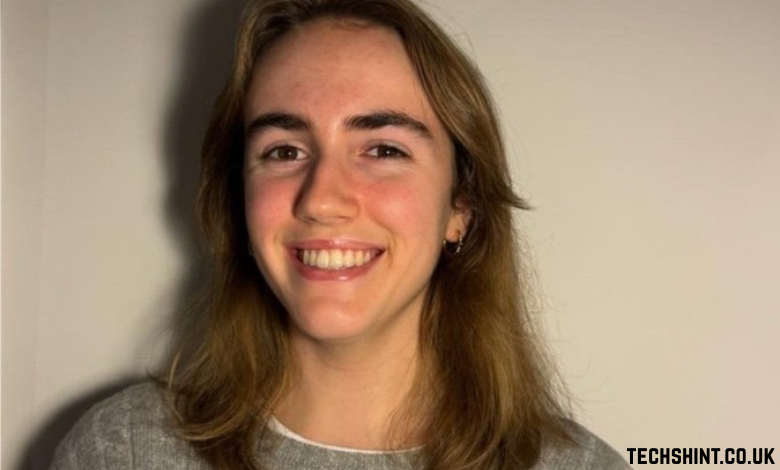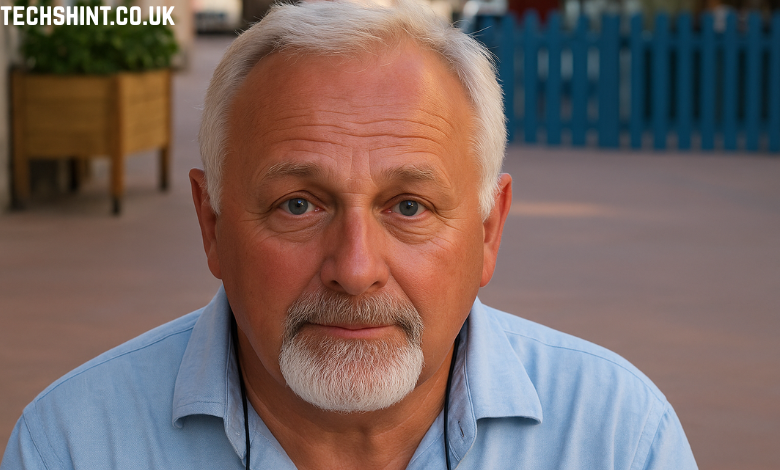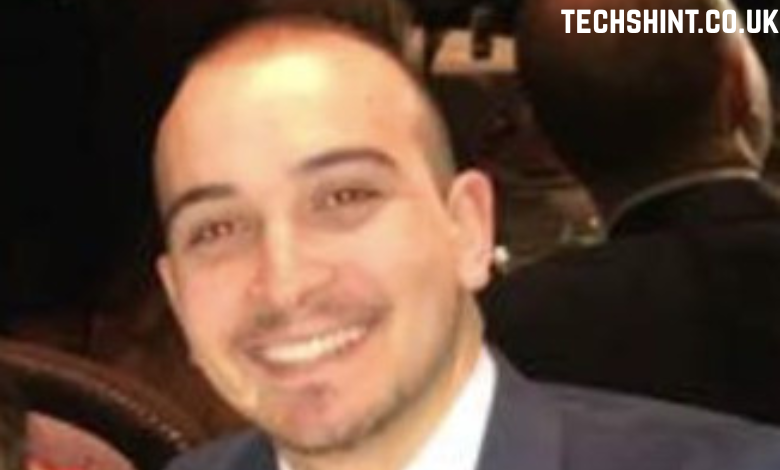In the evolving landscape of British academia, students who balance classical scholarship with modern responsibilities stand out for their adaptability and drive. Amelia Fournis-Lerma is one such example. Currently a first-year Classics student at University College London (UCL), Amelia is already shaping a diverse academic and professional path. With a solid educational background, volunteer work, part-time teaching responsibilities, and early work experience, her journey highlights a layered commitment to education, classical studies, and practical engagement with the broader community.
This profile examines Amelia’s academic achievements, extracurricular involvement, and early career experience. It also places her in the broader context of young scholars who are not only studying the past but also applying those insights to contemporary educational and community environments.
Academic Foundations: Building Excellence at City of London School for Girls
Amelia Fournis-Lerma attended the City of London School for Girls (CLSG) from September 2017 to July 2024. Over the course of her secondary education, she built a strong academic foundation, achieving outstanding grades. At A-Level, she secured AAA, and her GCSEs reflected consistent excellence with a string of top marks: 9999999888887.
Her time at CLSG was marked not just by grades, but by active involvement in school life. Amelia took on leadership responsibilities as Chair of the International Committee, a role that likely developed her organizational, communication, and cultural awareness skills. In parallel, she cultivated her writing abilities as a contributor to two school publications: Classics Magazine (CLSG) and Legenda, the latter a collaborative effort between CLSG and City of London School (CLS).
Her deep engagement with classical studies was further evidenced by her success in the Minds Underground Essay Competition. In the Classics category, Amelia was named runner-up, demonstrating both her analytical thinking and her ability to present arguments grounded in historical and literary evidence.
UCL and the Pursuit of Classical Studies
As of 2024, Amelia began her undergraduate degree in Classics at University College London, a university known for its robust humanities programs. Studying Classics at UCL involves immersion in Latin and Greek languages, literature, ancient history, and philosophy. It is a field that demands intellectual rigor, linguistic precision, and historical curiosity.
For students like Amelia, the decision to pursue Classics is both an academic and philosophical commitment. The discipline requires not only decoding ancient texts but also interpreting how classical civilizations inform contemporary thought, politics, and identity. With her proven writing ability and analytical skills, Amelia is well-positioned to contribute to this conversation both within and beyond the university setting.
Teaching Assistant at Ma Petite Ecole: Bridging Language and Learning
Since February 2023, Amelia has worked as a teaching assistant at Ma Petite Ecole UK, a French-language educational center aimed at fostering early bilingualism and cultural fluency. Her role, though part-time, has involved a range of classroom responsibilities:
- Assisting students with their classwork
- Helping maintain classroom structure and focus
- Supporting the head teacher in external operations
- Occasionally covering entire lessons in the absence of a teacher
This hands-on experience demonstrates her capability to manage a classroom environment and work with children in a nurturing and instructional capacity. The role has likely also strengthened her interpersonal and leadership skills, particularly in a multilingual setting.
Her involvement here is also a reflection of her broader language competencies. Amelia mentors in both German and French, having supported GCSE-level students in these subjects during her school years. Her ability to move between English, French, and German highlights her linguistic dexterity—an important skill both in classical studies and in a globalized education system.
Volunteering and Mentorship: Building Peer-to-Peer Support
Between September 2020 and July 2023, Amelia volunteered as a mentor at CLSG, focusing on German and French. Peer mentorship, especially in secondary education, plays a valuable role in reinforcing academic understanding and building confidence among younger students.
As a mentor, Amelia was likely responsible for guiding students through curriculum topics, supporting exam preparation, and offering encouragement through the academic year. Mentorship roles often attract students with patience, empathy, and reliability—qualities that align well with her later choice to work in a teaching environment.
This early commitment to educational support shows a pattern: Amelia not only engages with learning herself but contributes to the learning of others. That consistency reflects a broader interest in education as a collaborative, community-centered process.
Internship at Operis: Early Exposure to the Professional World
In July 2022, Amelia undertook a one-month internship at Operis, a company specializing in financial modeling and project finance. While the internship was short, it introduced her to basic professional tools such as Microsoft Excel and principles of marketing.
For a Classics student, an internship in a finance-related firm may seem like a departure from her main field of study. However, such cross-disciplinary experience is increasingly common and beneficial. It suggests Amelia’s openness to learning outside her comfort zone and exploring how skills developed through a humanities education—such as logical reasoning, data interpretation, and structured communication—can apply in corporate contexts.
Additionally, gaining familiarity with business operations and digital tools adds another layer to her profile, especially if she chooses to explore education policy, publishing, or consulting roles later in her career.
Writing and Thought Leadership: Early Signs of Academic Engagement
Throughout her time in secondary school, Amelia contributed articles to Classics Magazine and Legenda. These platforms allowed her to share insights on ancient texts, historical figures, and thematic links between antiquity and modern culture.
This writing experience marks a notable feature of her development—an early entrance into public academic conversation. In an educational system increasingly emphasizing interdisciplinary work and outreach, such experience positions Amelia not only as a student but also as a communicator of classical ideas to broader audiences.
Being a runner-up in the Minds Underground Essay Competition further underscores this aspect. These national competitions are designed to stretch students beyond the standard curriculum, rewarding critical thinking and originality. In Classics, where interpretation and argumentative clarity are central, such recognition is a significant early marker of capability.
Multilingualism and Cultural Agility
One of the recurring themes in Amelia’s profile is her command of multiple languages. In addition to English, she has academic experience in both German and French. This linguistic range reflects not only her personal educational background but also her role as a global learner and educator.
In her teaching assistant role, she likely employs French routinely. Her mentoring work in German and French suggests comfort with grammar, vocabulary instruction, and the pedagogical methods suited for secondary school learners.
In the broader landscape of classical studies, multilingualism is a valuable asset. Knowledge of modern languages supports engagement with international scholarship, ancient texts in translation, and comparative linguistic analysis. It also suggests potential for future graduate studies or international collaborations.
Future Trajectory and Potential Contributions
While Amelia Fournis-Lerma is still in the early stages of her academic journey, her experiences point to multiple potential future directions:
- Academia – With her writing background and Classics degree, postgraduate research in philology, ancient history, or comparative literature could be a logical step.
- Education – Her mentorship and teaching assistant experience align with a future in teaching, curriculum design, or language instruction.
- Publishing and Communication – Given her writing work and experience with student publications, Amelia could pursue roles in educational publishing, academic journalism, or cultural programming.
- Policy and Outreach – With her committee leadership and global perspective, she may also be drawn toward education policy, nonprofit work, or language advocacy.
Her ability to connect classical ideas with present-day applications makes her an interesting figure in discussions about the role of the humanities in contemporary society.
A Profile of Dedication and Interdisciplinary Engagement
Amelia Fournis-Lerma represents a growing cohort of young scholars who approach traditional academic subjects with modern versatility. Her strong academic performance, multilingual capabilities, teaching experience, and extracurricular leadership make her profile especially multifaceted.
She combines intellectual curiosity with practical experience, a blend that is increasingly valued in both academic and professional contexts. Whether she continues along the academic route or applies her classical training in broader sectors, Amelia is clearly positioned as someone capable of making thoughtful, informed contributions to the fields she engages in.
Her journey so far reflects a balanced model of student development—where education is not just about individual achievement, but about mentoring others, supporting cultural understanding, and remaining adaptable across contexts.
Conclusion
At just the beginning of her university career, Amelia Fournis-Lerma has already built a foundation rich in academic strength, practical experience, and meaningful engagement with others. As she progresses through her Classics degree at UCL and continues her work in educational environments, her path will likely offer insights into how classical education can inform and enrich modern academic and social structures.
Through mentorship, multilingualism, teaching, and writing, Amelia is actively contributing to a broader understanding of learning as a communal, cross-cultural, and enduring pursuit. Her work demonstrates that even in an age of rapid change, the rigorous and reflective discipline of Classics continues to evolve—especially in the hands of students like her.
FAQs
- Who is Amelia Fournis Lerma?
Amelia is a first-year Classics student at UCL and a teaching assistant at Ma Petite Ecole in London. - What are Amelia Fournis Lerma’s academic achievements?
She earned AAA at A-Level and received top GCSE grades while actively engaging in school leadership and publications. - Where has Amelia Fournis Lerma worked?
She works part-time at Ma Petite Ecole and previously interned at Operis, gaining experience in teaching and marketing. - What languages does Amelia Fournis Lerma speak?
She has mentored in German and French and uses French regularly in her teaching assistant role. - What extracurricular roles has Amelia held?
She chaired the International Committee and wrote for school publications like Classics Magazine and Legenda.


